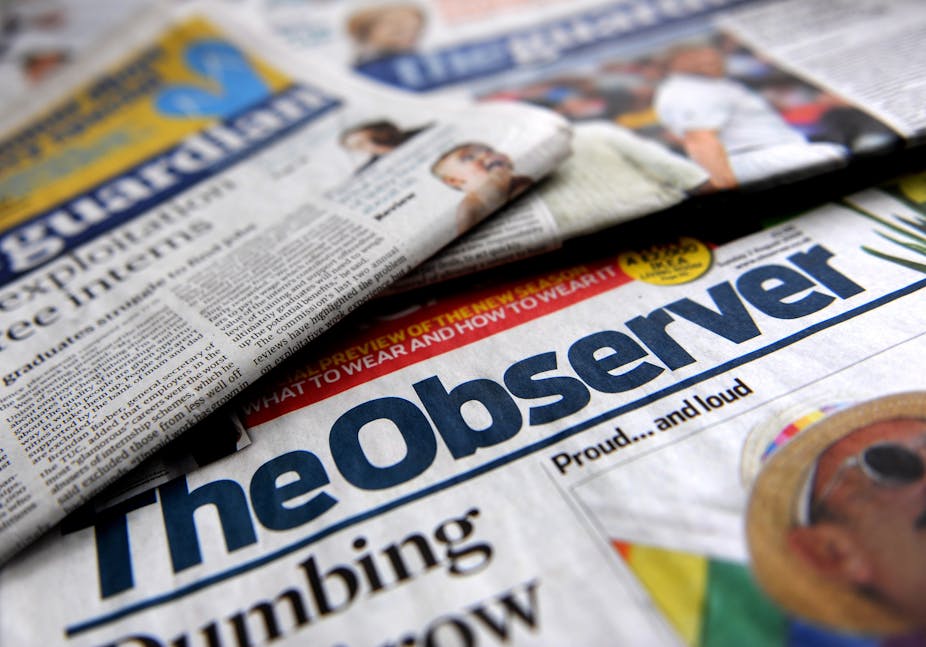There’s nothing like the sight of dirty linen on the line to make people indulge in a bout of lipsmacking self-righteousness and praise the noble-hearted crusading journalists.
This week has seen much noise in favour of the International Consortium of Investigative Journalists (ICIJ), who are busy titillating our salacious interest by publishing data that shames alleged misbehaviour in tax havens, following a large-scale leak from financial institutions in the British Virgin Islands (BVI), a tropical tax haven.
A year ago the mass media were agog with news about one of their favourite subjects: the mass media. Politicians and pundits united in condemnation of egregious privacy abuses and criminal acts by journalists and agents of some of the world’s largest media organisations.
Those people, with help from the police, had broken the law in obtaining and distributing information about both (in Rupert Murdoch’s words) “celebrity scumbags” and individuals who had merely been unfortunate.
Let’s step back just for a moment and consider what is going on. For at least thirty years, corporations, families and individuals have been using the services of banks and trustees located in the BVI.
Those services (along with traditional competitors in Liechtenstein, Switzerland and Luxembourg, to name a few) offer consumers several advantages. They have expertise and low costs attributable to economies of scale. They are located in a low tax (often no tax) jurisdiction. They are in a time zone conveniently adjacent to the US. Unlike Hong Kong, they don’t involve the kleptocracy known as the Chinese Communist Party. Most importantly, they are founded on confidentiality.
Confidentiality isn’t a bad thing, unless you are a digital vigilante such as Senate hopeful Julian Assange. It’s a long-standing and valuable feature of Australian law, treasured by journalists. Relying on confidentiality – for example when you visit the family doctor or are wary about sharing your employer’s sensitive information – does not signal that you are criminal, evil or otherwise shameworthy.
In most countries, having an overseas bank account or using the services of an institution in the BVI, Vanuatu, Hong Kong or Switzerland is not illegal. Those services might enable someone to break the law through money-laundering, insider trading, bribery, fraud or tax offences. And yet they might not.
We should therefore be wary in drawing inferences from the existence of “names” in the BVI leak. It’s clear that some of the names highlighted by ICIJ journalists belong to despicable people whose wealth results from outrageous corruption.
Some of the names, however, belong to people and corporations with impeccable reputations. Those entities are likely to get a clean bill of health on the basis that they have broken no laws. Simply appearing on a blacklist doesn’t indicate criminality or unethical behaviour. Leaking financial data to crusaders may however be illegal.
As the Finkelstein and Leveson inquiries into the press (in Australia and the UK respectively) fade into the distance, disavowed by politicians who initially seemed so enthusiastic, let’s ask whether “trial by media” is ethical. The BVI leak and the way that it is being promoted as a triumph of investigative journalism (forget Murdochgate, think Woodward and Bernstein) gives the lie to the claim that “the truth will set you free”.
We do not, however, with apologies to the reporters (who have relied on data mining software rather than being particularly intrepid), know what’s true. As with much of the WikiLeaks data we have been presented with data that may be true or false. It may be incomplete. It may be grossly misinterpreted. It is data that sells newspapers but might best be left to regulators.
Its release and exploitation by the mass media disregards fundamental legal principles. If it’s legitimate to reveal BVI customer details why isn’t ok to unilaterally release your information? Your tax file? Not ok on the basis that you are innocent, unlike the BVI customers whose guilt at this stage is simply attributable to appearing on a list?
Brouhaha about the ICIJ revelations coincides with noise from WikiLeaks about alleged tale-telling by Bob Carr and Bob Hawke to US officials about the Whitlam government. Those figures are being condemned for an activity that goes on all the time and involves many politicians, irrespective of political affiliation. Ironically it is the same activity that feeds both the tabloids and broadsheets.
“I brief, you leak”, is how one UK minister in the 1960s is reported to have explained accepted journalistic practice. In 2013 it’s a case of “you brief, I write headlines”. Let’s see some context, rather than faux shock, outrage and guilt by headline.

